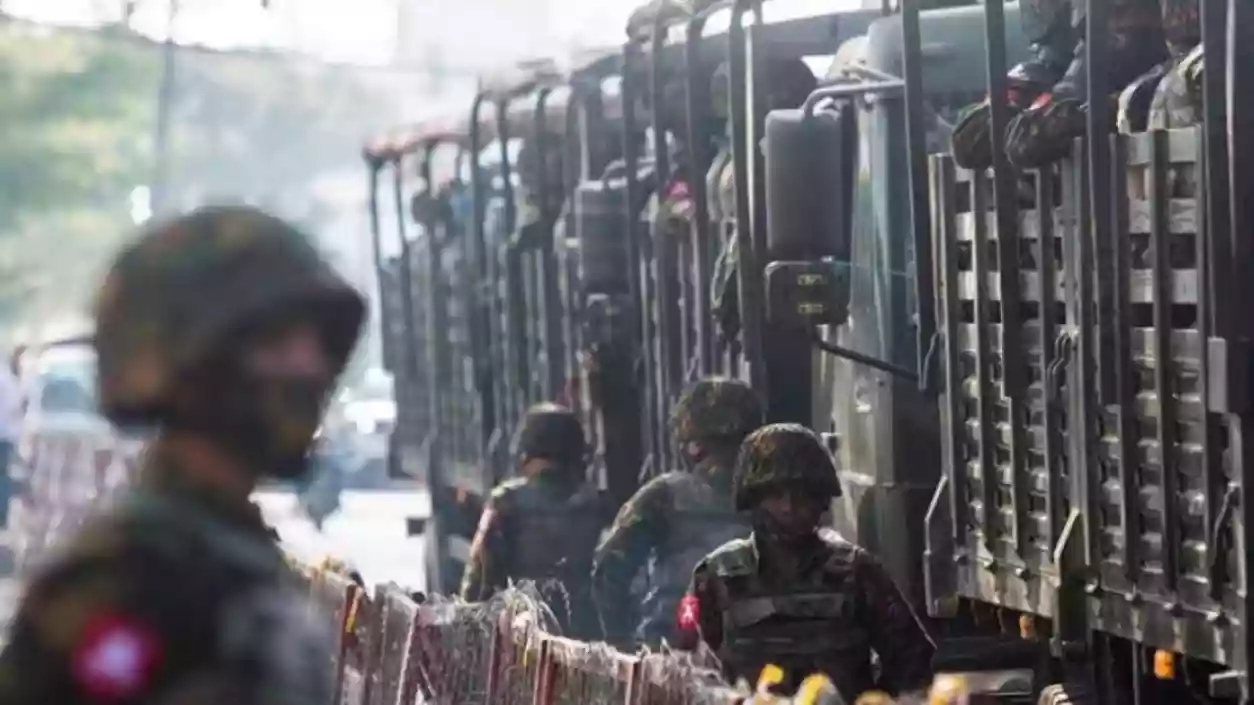Kolkata metro to be extended till Hooghly's Chuchura? Here's what Railway minister says
.gif)
.gif)

India hosted an 18-member delegation from Myanmar’s military-led junta in New Delhi from November 5-6, as part of a workshop organized by the Indian Council of World Affairs (ICWA). The delegation was led by two lieutenant generals and included representatives from the State Administration Council (SAC), the military junta that has controlled Myanmar since the 2021 coup. Along with SAC officials, the delegation featured members of political parties and ethnic revolutionary organizations (EROs) aligned with the junta, including those that signed the Nationwide Ceasefire Agreement (NCA) in 2015. The closed-door event focused on discussions around federalism, democracy, and finding potential solutions to the ongoing crisis in Myanmar.
Myanmar has been in turmoil since the military coup in February 2021, which ousted the democratically elected government led by Aung San Suu Kyi's National League for Democracy (NLD). Following the coup, the country has faced widespread protests, crackdowns, and increasing armed resistance, with ethnic armed organizations (EAOs) and civilian militias fighting against the junta. In recent months, the junta has suffered significant setbacks, including the capture of military outposts by the Arakan Army in Rakhine state. These developments have heightened the military’s challenges, as anti-junta resistance forces continue to gain momentum.
The junta’s military regime, though in control of large parts of Myanmar, has struggled to maintain stability across the country. The National Unity Government (NUG), established by ousted lawmakers after the coup, has sought international recognition as the legitimate government of Myanmar but remains constrained by the military’s dominance. Various ethnic armed organizations that signed the NCA have also opposed the junta’s rule, engaging in active combat with military forces. Despite ongoing fighting, Myanmar's internal conflict has prompted international efforts to seek a peaceful resolution through dialogue, which India has supported as part of its broader diplomatic strategy.
The ICWA workshop was designed to facilitate dialogue on governance models, drawing on India’s experience with constitutionalism and federalism. While the anti-junta resistance forces were not part of the discussions, India’s foreign policy has indicated an interest in a more inclusive peace process that includes all relevant Myanmar factions. The Indian government has consistently emphasized the need for a Myanmar-led and Myanmar-owned solution to the crisis, with the hope of eventually returning to a more democratic system. India’s engagement is framed by a recognition of Myanmar's sovereignty, with an emphasis on ending the fighting through dialogue.
Myanmar’s instability has direct implications for India, particularly in its northeastern states, where insurgency groups operate along the border. The Indian government has been concerned about the impact of the conflict on regional security, particularly the movement of refugees and the potential for cross-border militancy. India has therefore maintained diplomatic relations with the junta, while also cautiously engaging with the NUG and other opposition groups. This approach reflects India’s security concerns, as well as its desire to prevent further destabilization of the region.
While the focus of this week’s talks was on finding a path to peace and stability, there are indications that future events may expand to involve the NUG and other resistance groups. India’s role in Myanmar’s crisis remains complex, balancing its support for democracy with the practical need to manage the regional security implications of the conflict. India has repeatedly affirmed its commitment to Myanmar’s stability and peace, supporting the idea of a homegrown solution to the conflict, while recognizing the challenges posed by the ongoing fighting and the absence of a unified political solution.
The ICWA workshop and the ongoing dialogue with Myanmar’s junta delegation are part of India’s broader diplomatic efforts aimed at addressing the long-term challenges posed by Myanmar’s instability. India has expressed its desire to work with Myanmar’s people, including all political factions, to develop a resolution that supports peace, stability, and democratic governance. However, the road to such a resolution remains uncertain, as Myanmar’s political and military landscape continues to evolve amid ongoing conflict.